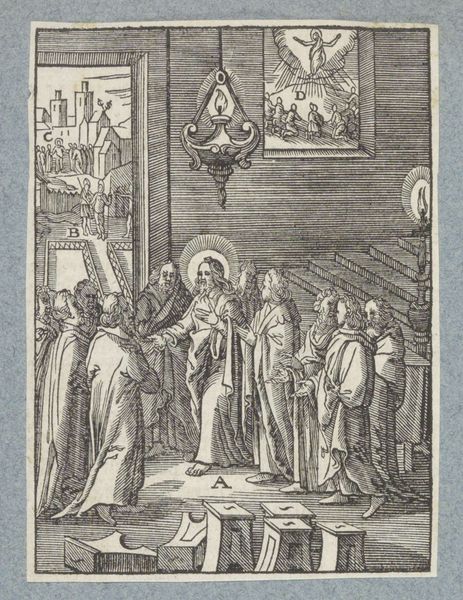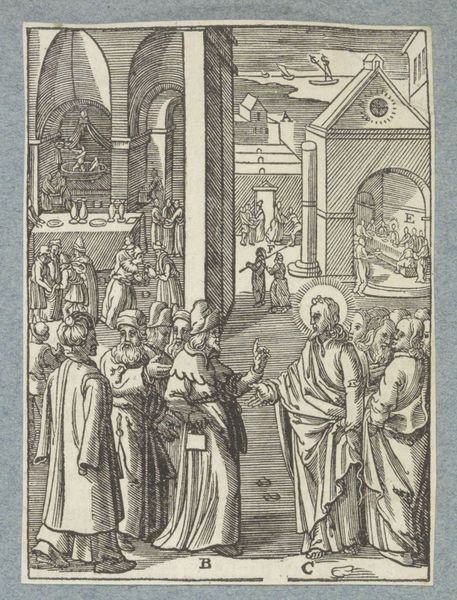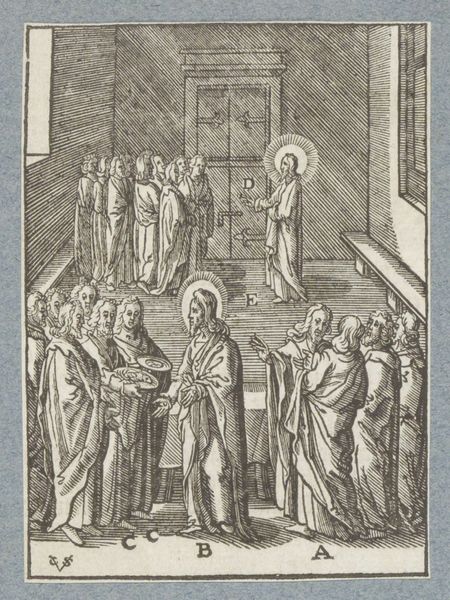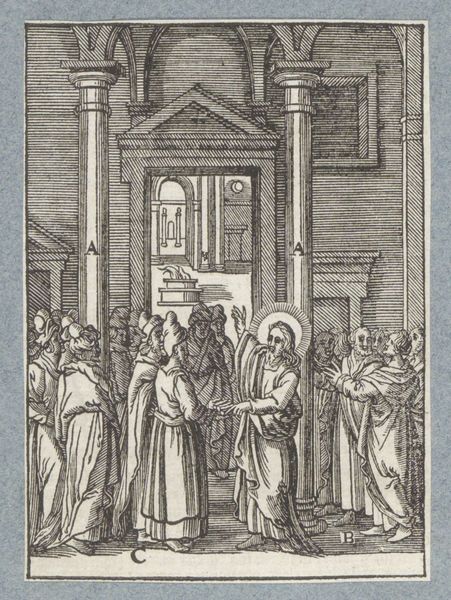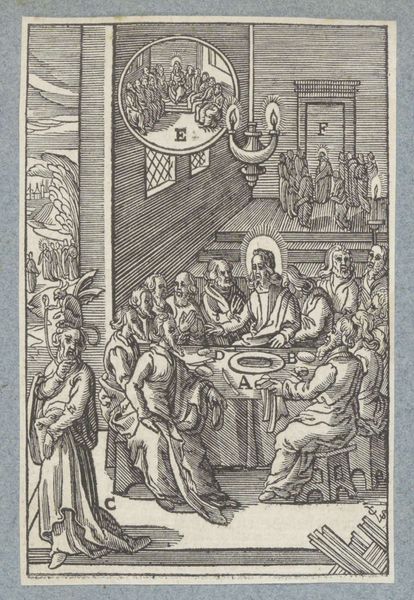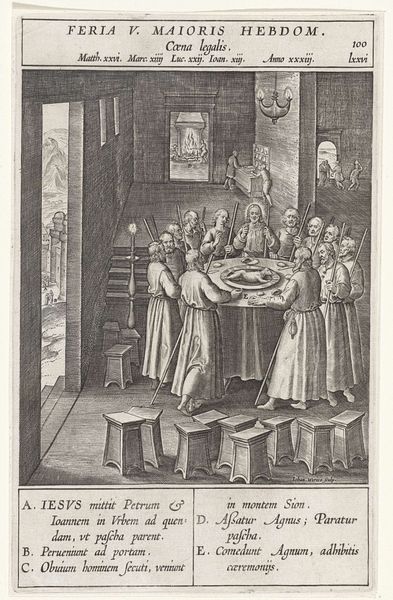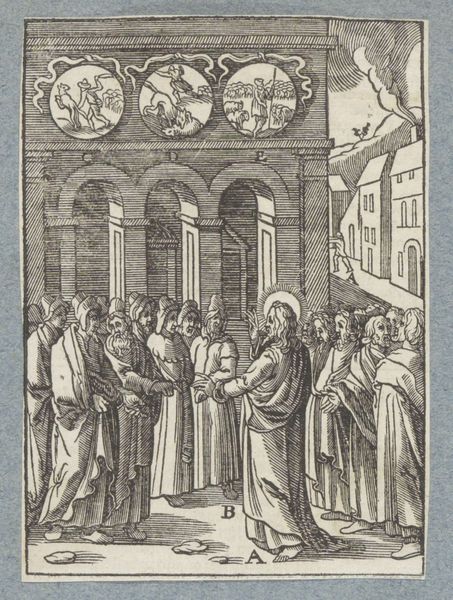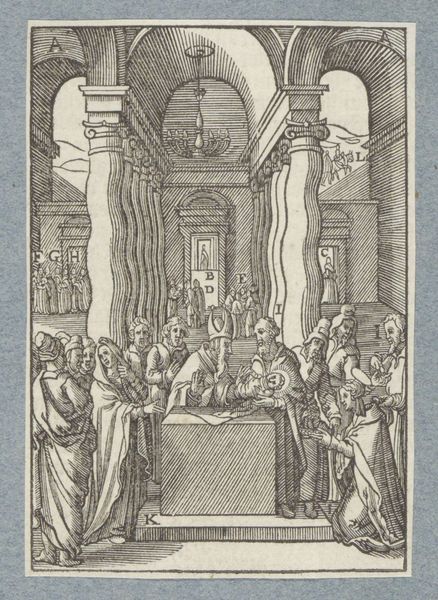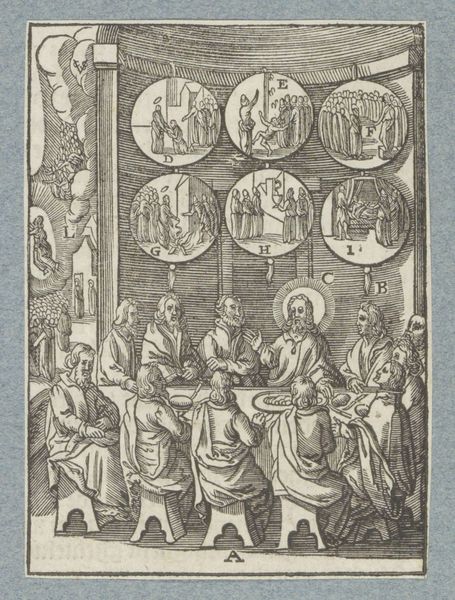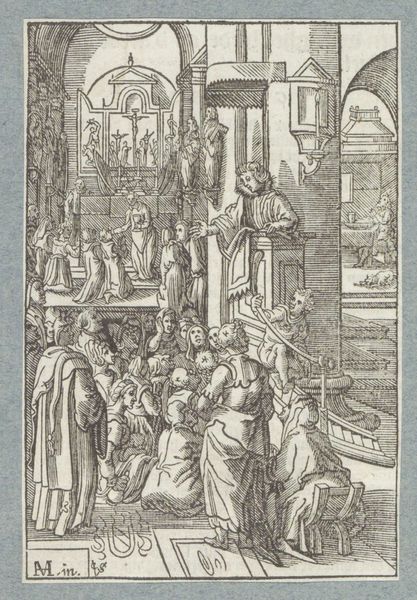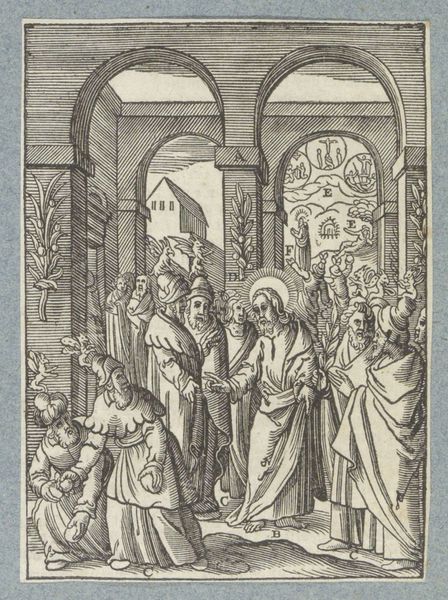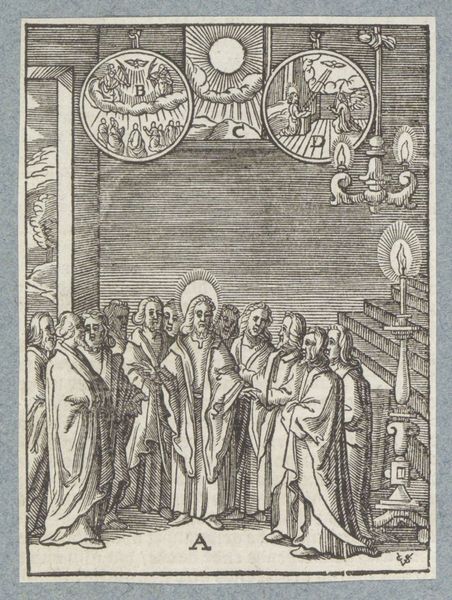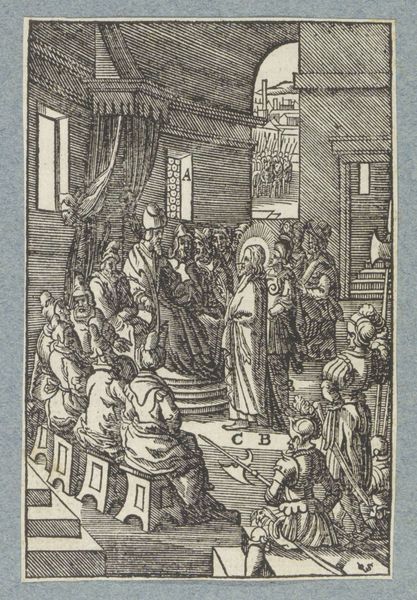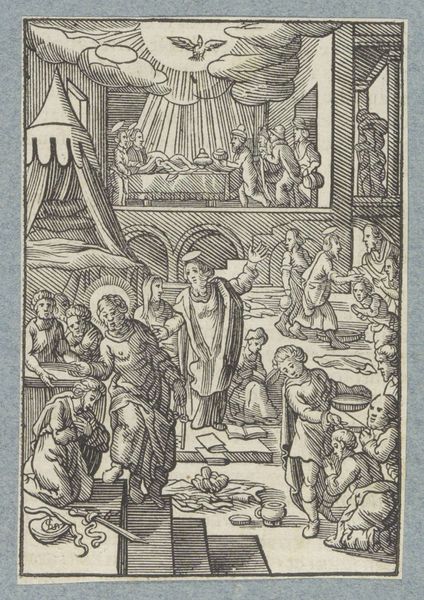
print, engraving
# print
#
figuration
#
line
#
history-painting
#
northern-renaissance
#
engraving
Dimensions: height 104 mm, width 72 mm
Copyright: Rijks Museum: Open Domain
This small woodcut, titled "Pesachmaal," was made by Christoffel van Sichem the Younger, probably in the early 17th century. The process of woodcut is key to understanding its visual impact. The artist would have laboriously cut away the areas of the block that he didn't want to print, leaving a raised image. Consider the sheer amount of focused, skilled work required, cutting with the grain of the wood. Look at the figure of Christ and his disciples gathered for the Passover meal, all described with an even, controlled line. The architecture in the background, and the many figures in the room, have all been painstakingly carved in great detail. The texture of the wood itself has a huge influence. It lends a certain graphic quality to the lines and shading, a kind of directness that we might associate with folk art. Yet, woodcut was also a key technology for disseminating images during the rise of the print marketplace. Appreciating the labor and materiality behind this piece allows us to see it not just as a religious depiction, but also as a product of its time.
Comments
No comments
Be the first to comment and join the conversation on the ultimate creative platform.
